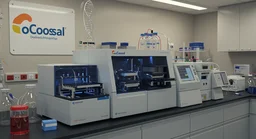Dr. Daniel Drucker Wins 2025 Breakthrough Prize for Transformative GLP-1 Research
88 views
Dr. Daniel Drucker, a Canadian endocrinologist whose groundbreaking work on the GLP-1 hormone has transformed the treatment of diabetes and obesity, has been awarded the prestigious 2025 Breakthrough Prize in Life Sciences. Sharing the US$3 million honor with four international colleagues, Drucker’s research has not only revolutionized the medical landscape but also sparked broader societal conversations about health, equity, and the ethics of innovation. The Breakthrough Prizes, often likened to the “Oscars of Science,” were presented in a star-studded ceremony in Los Angeles, celebrating achievements across disciplines such as Life Sciences, Physics, and Mathematics.
The Hormone That Changed Everything
Dr. Drucker’s journey with glucagon-like peptides (GLP-1) began in the 1980s, during his time as a young researcher in Boston. What started as a niche area of endocrinological inquiry evolved into a decades-long pursuit that would lead to the development of medications like Ozempic, Wegovy, and Mounjaro—names now synonymous with effective diabetes and obesity management. Today, these drugs, developed by pharmaceutical giants Novo Nordisk and Eli Lilly, are hailed not just for their efficacy in controlling blood sugar and aiding weight loss, but for their potential to mitigate a host of other health risks, including heart attacks, strokes, and diabetic kidney disease.

The ripple effects of GLP-1 research extend far beyond its initial scope. Emerging studies suggest that these medications may hold promise in addressing neurodegenerative conditions such as Parkinson’s and Alzheimer’s diseases, as well as substance use disorders. Drucker’s work has thus opened doors to a new frontier in medicine, where a single hormonal pathway could influence a spectrum of chronic conditions.
Yet, the implications of GLP-1 go beyond the laboratory. Drucker himself has underscored the societal shift in how obesity is perceived—a shift catalyzed, in part, by the success of these medications. For decades, obesity was framed as a matter of personal responsibility, often stigmatized as a failure of willpower or lifestyle. GLP-1 drugs have reframed the narrative, offering a biological explanation and a medical solution for a condition that affects millions. “We are finally moving past the blame game,” Drucker remarked, noting that these medications have provided hope to those who have struggled unsuccessfully with weight loss.
Science Meets Society: The Complexities of Progress
While the accolades for Drucker and his colleagues are well-deserved, the success of GLP-1 drugs has also brought to light a series of ethical and societal challenges. Chief among them is the issue of access. With prices that can exceed $1,000 per month, these medications remain out of reach for many, particularly in countries without robust healthcare coverage. Drucker has been vocal about the need for equitable access, warning that the transformative potential of GLP-1 drugs could be undermined if they remain the privilege of the wealthy.
Equally concerning is the potential misuse of these medications. As their popularity has surged, so too has their off-label use by individuals without medical necessity, driven by societal pressures to achieve a certain body image. Drucker has cautioned against this trend, pointing out the lack of clinical trials on healthier populations and the unknown long-term effects of GLP-1 drugs in such contexts. “We need to approach this with caution,” he said, emphasizing the importance of science-based guidelines to prevent unintended consequences.
The Breakthrough Prizes themselves reflect a broader cultural moment, where science and society are increasingly intertwined. By awarding Drucker and his colleagues, the prize committee not only recognized the scientific ingenuity behind GLP-1 research but also highlighted its profound impact on public health and social attitudes. The ceremony in Los Angeles served as a reminder that science, at its best, is a collaborative and human endeavor—one that bridges borders and disciplines to tackle the world’s most pressing challenges.
The Future of GLP-1 and Beyond
As the scientific community continues to explore the potential of GLP-1, Drucker remains at the forefront, pushing the boundaries of what this hormone can achieve. His current research delves into its applications in conditions like liver disease and heart failure, further expanding the horizon of possibilities. At the same time, he is advocating for a balanced approach to innovation—one that considers not just the benefits but also the risks, costs, and ethical dimensions of new medical technologies.
The story of GLP-1 is, in many ways, a microcosm of modern science: a tale of discovery, collaboration, and transformation, tempered by the complexities of implementation in a diverse and unequal world. For Drucker, the Breakthrough Prize is not just a recognition of past achievements but a call to continue the work of bridging the gap between scientific potential and societal impact.
As we celebrate this milestone in medical research, it is worth reflecting on the broader lessons it offers. The success of GLP-1 drugs underscores the importance of sustained investment in basic science, the value of international collaboration, and the need for ethical frameworks that ensure innovations serve the many, not just the few. In an era where science often finds itself at the center of political and cultural debates, stories like Drucker’s remind us of its enduring power to change lives—and the responsibility that comes with it.


























